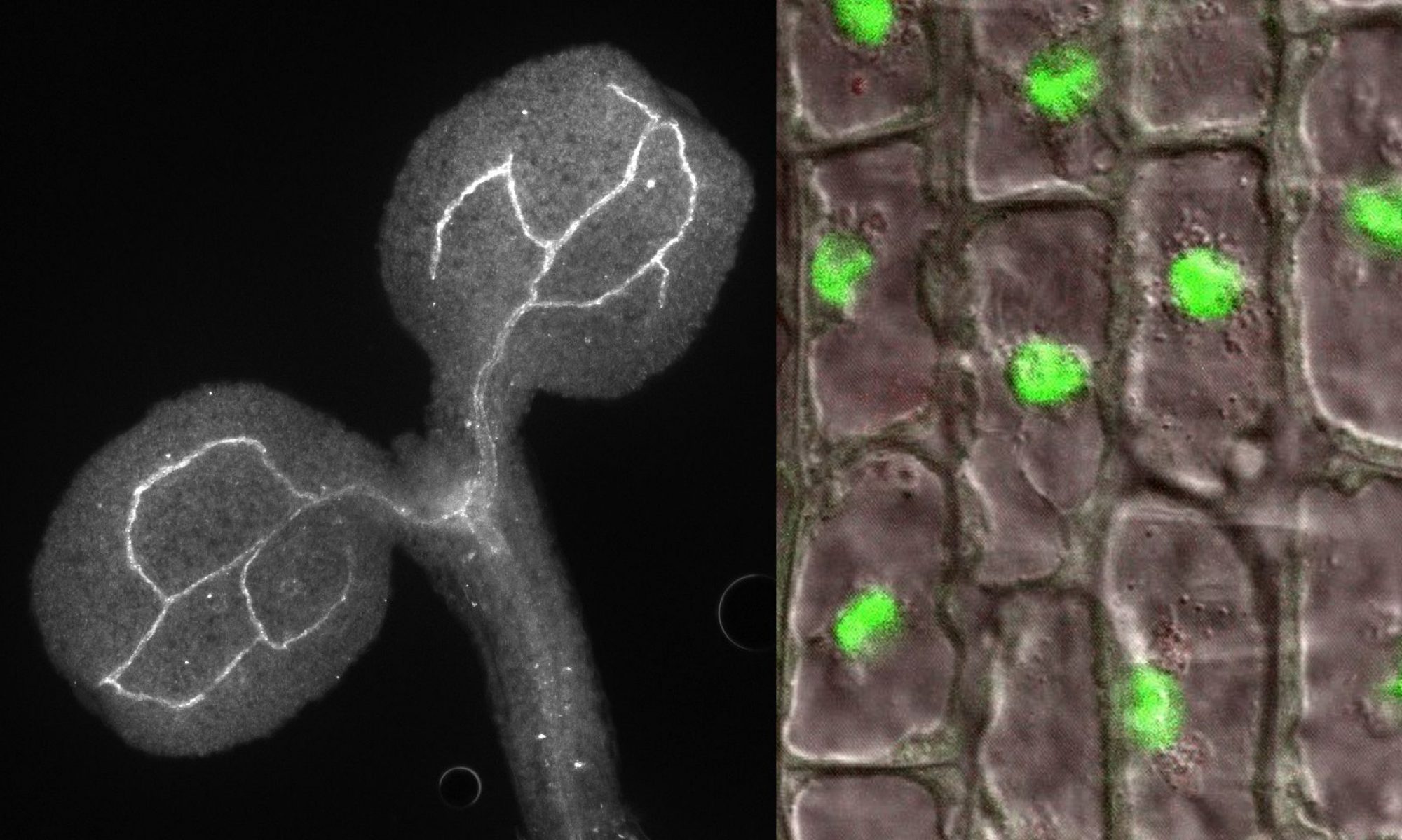Project NCN PRELUDIUM 2015/19/N/NZ2/00200
Project NCN ETIUDA 2018/28/T/NZ1/00077
Project EMBO ASTF 396-2015
Project EMBO STF 7351
One of the most important cytoplasmic RNA quality control pathway is Nonsense-Mediated mRNA Decay mechanism (NMD), which recognizes aberrant mRNAs carrying premature termination codons (PTC). Aberrant PTC-containing transcripts most often result from alternative splicing, mutations or transcription errors. The major function of NMD is to protect against accumulation of potentially harmful proteins, but it also regulates the expression of genetic information of normal transcripts and plays a role in response to stress. Therefore, NMD is not only an RNA quality mechanism, but also contributes to cellular homeostasis.
Our analysis of the plant NMD mechanism in the model organism Arabidopsis thaliana, is mainly related to establishing interactors of UPF1 protein, which is a major NMD factor. The identified UPF1-interacting proteins included not only known NMD factors, but also novel potential components of the NMD machinery. The most interesting proteins were a group of helicases from the DEAD-box family, homologues of human DDX3 (RH11, RH37, RH52) and DDX6 (RH6, RH8 and RH12). Functional studies of these helicases confirmed their involvement in NMD efficiency as positive and negative regulators, respectively. Also their subcellular localization and co-localization with major NMD factors corroborated their role in this mechanism.
In addition, our preliminary results supported the association of the NMD mechanism with translation and indicated a physiological role of NMD in response to heat stress. Moreover, pilot experiments suggested a possibility that m6A modifications in mRNA molecules may contribute to the regulation of NMD efficiency.
International cooperation
Daniel Silhavy, Agricultural Biotechnology Institute, Gödöllő, Hungary
Cécile Bousquet-Antonelli Université de Perpignan-CNRS, Laboratoire Génome et Développement des Plantes (LGDP), Perpignan, France.

